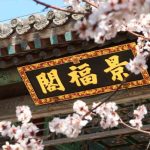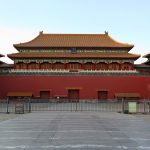The surnames of the Chinese people appeared during the matriarchal society,when clans were constituted with mothers at the center. And clans distinguished themselves from each other by using the name
The surname has roughly several origins as follows
1: with the first name of the mother as the surame of the clan in the matriarchal society
2:with the creatures worshipped in the remote antiquity as the surname,such as 马 horse,牛cattle,羊sheep,龙dragon ,etc
3:with ancient states’s names as the surname,such as 赵 zhao,宋song,秦 qin,吴wu, etc
4: with ancient official titles eventually adopted as the surname,such as 司马 Sima and 司徒Situ
5 with the rank or title of nobilit as the surname
6, with the location and scene in residential places as the surname
7 with the profession as the surname. For instance the person who makes pottery as the surname of Jade carving
陶 pottery
8 with ancestors’ offical and courtesy names as the surname. For example,the Chinese nation’s ancestor was named 轩辕 Xuanyuan, which later became a surname
Some are one-character surnames,while others are compound surnames made up of two or more characters. Up to now, there is no exact statistic on how many surnames there are in China. Contemporary Chinese use about 3 500 Chinese surnames. Among the 100 commonly used surnames,the three most common are: Li ,Wang ang Zhang; Zhuge, Ouyang,Situ and Sima are the common compound surnames
In China, the surname comes first,and is followed by the given name, and the latter has its own traditions and features. It can have one or two characters. In the same clan, the given name is arranged in the order of seniority in the family of the peers usually have one Chinese character in common if there are more than one character in their given names. The names of the ancient men were more complicated than those of the modern people. People of literacy and status have both a style name and an alternative name, along with the surname and given name. For example, a man of letters Su Shi in the Song Dynasty had the style name Zizhan and the alternative name Dong po. The poet Li bai in the Tang Dynasty lived in the Qinglian Village in Sichuan Province in his childhood, and thus he styled himself Qinglian Jushi( retired scholar)
Chinese names usually have a certain meaning,expressing some kind of wish. Some names embody the location,time or natural phenomenon when the person was born, such as Jing(Beijing), Chen(morning),Dong(winter),Xue(Snow). Some names indicate the expectation of possessing some virtues,such as Zhong(loyalty),Yi(justice),Xin(faith). Some names have the meaning of health,longevity and happiness,such as Jian(health), Shou(longevity) Song(pine),and Fu(happiness). Male names are different from femal ones:men’s names usually have the character meaning power and vigor,such as Xiong(grandeur),Wei(magnificence).Hu(tiger),Long (dragon). And the names of femels usually use characters representing gentleness and beauty, such as Feng(phoenix), Hua(flower),Juan(graceful)
Today,the Chinese do not pay as much attention to naming,as did ancient folk. Generally a person has an infant name and an offical one,and the given names are not necessarily arranged in the order of the seniority in the family hierarchy. However,it’s still the Chinese people’s wish to give their children a name which sounds good and meaningful,










